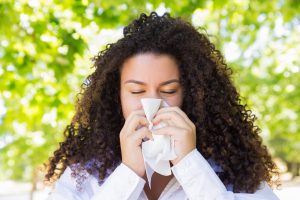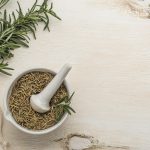Seasonal Allergies Treatment
As the springtime draws nearer, the days get warmer, longer, and livelier. Everyone can tell the cold, dark and dreary days of winter are nearly over and that summertime is just around the corner. With these warmer months come sunny days, gardening, flowers blooming, beach trips, and so much more. However, despite these exciting activities, spring and summer also bring with them one very important, very annoying aspect: seasonal allergies.
What are Seasonal Allergies?
As its name suggests, these allergies only occur during certain seasons of the year. Commonly referred to as hay fever, about 8% of Americans experience these allergies in their lifetimes. The term “hay fever” comes from the hay-cutting season occur during the summer months, around the same time many people experience these allergies. Hay fever happens when a person’s immune system reacts to an allergen, such as pollen, commonly found outdoors.
An allergen refers to a substance that causes allergic reactions, some of the most common being pollens from plants such as weeds, grasses, and trees. These plants are usually wind-pollinated since the pollen from insect-pollinated plants tends to be too heavy and does not stay airborne for long, which would make it an unlikely contributor to seasonal allergies.
Causes
Seasonal allergies tend to occur when a person’s body classifies harmless airborne particles as dangerous. The response to this trigger is to release histamines into the bloodstream. Histamines are a compound released by the body in response to an injury and inflammatory or allergic reaction. These histamines produce the symptoms common to an allergic reaction.
Some of the most common causes of seasonal allergies vary depending on the season.
- Spring: Trees are usually responsible for allergies during the springtime. Cedar, birch, willow, alder, and horse chestnuts are more of the most popular ones.
- Summer: “Hay fever” receives its name from this season, during which most hay-cutting takes place. However, ryegrass, timothy grass, and certain weeds are the actual elements to blame for summertime allergies.
- Fall: Ragweed, also known as Ambrosia, is the typical reason behind autumn allergies. Their pollen is a common allergen, and the symptoms associated with Ragweed allergies are among the most severe. They are invasive plants that are difficult to control and have over 40 species worldwide.
- Winter: Although winter is the season in which people with hay fever get their relief, it is also the season when we spend more time indoors. People with seasonal allergies might also suffer allergic reactions to indoor allergens such as mold, pet fluff, or dust mites. Some people even experience allergies due to cockroaches.
Symptoms
Symptoms of seasonal allergies can vary depending on each person. Some people might experience more intense symptoms than others, and some might even carry these symptoms with them for longer than the spring and summer months.
- Sneezing
- Stuffy, clogged, or runny nose
- Ear congestion
- Itchy throat, sinuses, or ear canals
- Coughing
- Headaches
- Shortness of breath
- Asthma (many people with hay fever also tend to suffer from asthma. These seasonal allergies could trigger an asthma attack.)
Seasonal allergies treatment
There are multiple ways to treat or alleviate seasonal allergies:
- Avoidance: Reviewing the weather for pollen counts and staying home when they are high, keeping windows shut, limiting time outdoors, or wearing a dusk mask outside can reduce allergies. Using an air conditioner with a HEPA filter over a ceiling fan to cool the home would benefit as well. Smoking can also lead to worsened allergy symptoms.
- Medication: over-the-counter antihistamines such as Zyrtec (cetirizine), combination medications containing phenylephrine, diphenhydramine, and acetaminophen would all be helpful to alleviate allergies. Other options include prescription medications such as steroid nasal sprays, or in severe cases, a doctor might recommend allergy shots.



